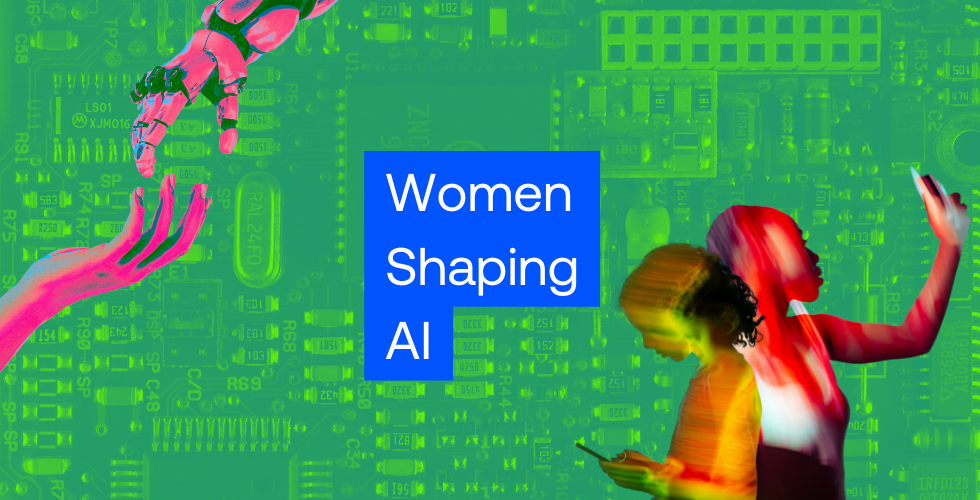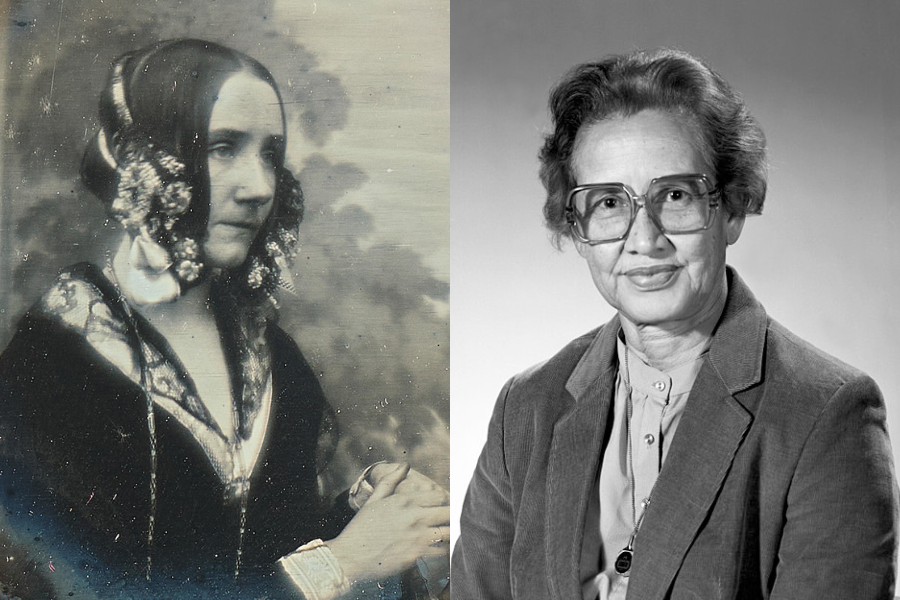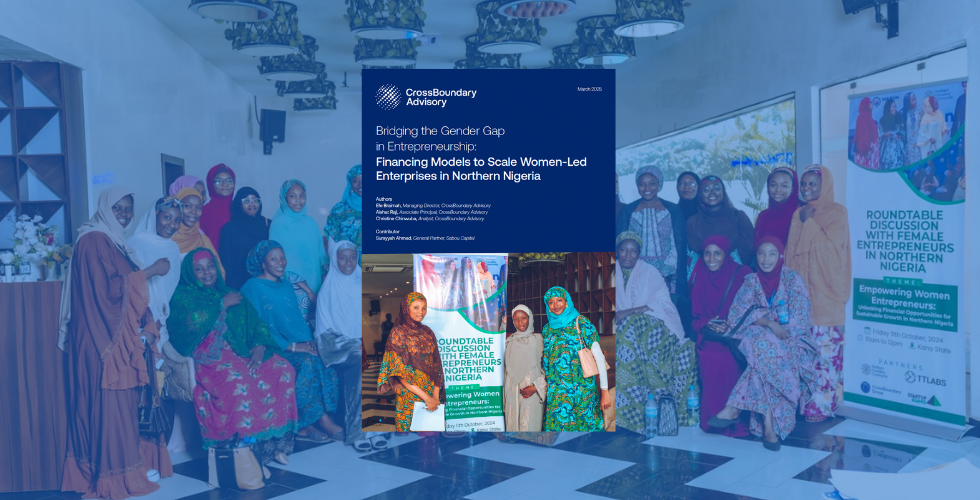
Women Shaping AI
This article was developed using AI to enhance research, with the author's thoughts, editing, and fact-checking included. The author also wanted to see where the models fell short and where biases/information gaps persisted.
This article was developed using AI to enhance research, with the author's thoughts, editing, and fact-checking included. The author also wanted to see where the models fell short and where biases/information gaps persisted.
— Feminist AI Research Network of the <A+> Alliance
Men’s voices have long dominated the narrative around artificial intelligence (AI), even though women have played critical roles in its invention, research, development, and ethical oversight. Although female pioneers in AI receive acknowledgment in academic and industry circles, their names seldom reach the same mainstream recognition as their male counterparts.
But the conversation is evolving. In March 2025, the first-ever Responsible AI Forum was held in Chicago, hosted by AnitaB.org, an organization born from the Systers online network, co-founded by computer scientist Dr. Anita Borg. The event underscored the urgent need for diverse voices in the AI industry.
“With AI policies evolving at an unprecedented pace—from the EU AI Act to emerging U.S. regulations—women must play a central role in shaping the future of AI,” said AnitaB.org President and CEO Brenda Darden Wilkerson.
Around the world, women and non-binary scientists, engineers, entrepreneurs, and policymakers are influencing the direction of AI. These trailblazers are pushing the boundaries of technological advancement and ensuring that AI serves humanity equitably.
Gender Gap in the Global AI Workforce


– Francesca Rossi, IBM Fellow, AI Ethics Global Leader, IBM Research

The Matilda Effect
The underrepresentation of women in AI and technology is not due to a lack of contribution but rather a historical pattern of erasure and undervaluation of women’s achievements—a phenomenon known as the Matilda Effect. Coined by historian Margaret Rossiter, the Matilda Effect describes the tendency for women scientists’ and inventors’ work to be overlooked or attributed to their male counterparts. This bias has persisted across history, ensuring that the most recognized figures in technological advancement are often men, while equally significant contributions from women remain in the shadows.
For example, while names like Thomas Edison and Nikola Tesla are synonymous with electricity, fewer people recognize Edith Clarke, an electrical engineer who revolutionized power grid analysis. In computing, we celebrate Alan Turing’s work but often fail to mention Ada Lovelace, who developed the first algorithm intended for execution by a machine. Even in space exploration, Neil Armstrong and John Glenn are American household names, but many are unaware that mathematicians like Katherine Johnson performed the complex calculations that made the Apollo missions possible.
This is changing – the movie Hidden Figures, for example, highlighted Johnson and her colleagues, Mary Jackson and Dorothy Vaughan. However, the systemic bias against the achievements of women continues to shape how innovation is funded and recognized today.

Ada Lovelace (L) and Katherine Johnson (R). Image Credit: Wikipedia
Contributions from Women Around the World
(organized by regional origins)
Asia: Advancing World-leading AI

Zhang Linghan, Ph.D., serves as a professor at the Institute of Data Law, oversees doctoral students at the China University of Political Science and Law, and is a visiting scholar at Cornell University. Her research extensively covers cyberspace law and algorithmic governance, and she is a member of the UN High-Level Advisory Body on AI. For several years, she has engaged in legislative advisory efforts concerning laws related to algorithm regulation, platform governance, data security, and artificial intelligence governance China.
Photo Credit: World Economic Forum

Malaysian-born data scientist Kavita Ganesan, Ph.D., has significantly contributed to natural language processing and machine learning. She is the author of The Business Case for AI, a guide for organizations on effective AI implementation. Ganesan also founded Opinosis Analytics, which focuses on AI strategies for optimizing business performance.
Photo Credit: LinkedIn

Saffron Huang and Divya Siddarth co-founded the Collective Intelligence Project, which, in 2023, worked with Anthropic to run a public input process involving ~1,000 Americans to draft a constitution for an AI system called Constitutional AI. The Collective Intelligence Project advocates for harnessing AI to enhance collective intelligence and improve cooperative efforts, ensuring that transformative technologies serve the public interest. In 2024, Siddarth delivered a TED talk on how AI and democracy can fix each other.
Photo Credits: saffronhuang.com and TED

As the CEO of Advanced Micro Devices (AMD), Dr. Lisa Su has spearheaded a remarkable company turnaround, establishing it as a significant player in the semiconductor industry. An American businesswoman born in Taiwan, she has overseen substantial technological advancements and financial growth at AMD, especially in AI and specialized chips. In 2024, she was named Time’s CEO of the Year.
In a conversation with the Harvard Business Review, Su said: “We’re consistently trying to drive more gender diversity, as well as overall diversity, and the reason for that, frankly, is we want to build the best business and products. To do that, you need a diversity of experiences and thoughts. The best thing we can do is give people opportunities. So what I’m focused on is giving women more exposure to the industry and then chances to shine and demonstrate their capabilities.”
Photo Credit: AMD

Chinese-American computer scientist Dr. Fei-Fei Li is one of the most prominent figures in AI research. As a professor at Stanford and co-director of the Stanford Human-Centered AI Institute, Li’s work in computer vision has been foundational in shaping modern AI. Her research has been cited more than 100,000 times, earning her the “godmother of AI” moniker. In September 2024, her research paid off. Her World Labs startup raised $230 million.
Li champions an interdisciplinary approach to AI development, emphasizing the ethical implications of machine learning. “The way we understand the structure of the world, imagined or real, will fundamentally be a piece of this AI puzzle,” she notes, highlighting the need for contextual intelligence in AI systems.
Read Dr. Fei-Fei Li’s memoir: The Worlds I See: Curiosity, Exploration, and Discovery at the Dawn of AI
Photo Credit: Steve Jurvetson
Europe: The Mathematical Foundations of AI

A pioneering Italian computer scientist, Luigia Carlucci Aiello, has been instrumental in AI research. She founded the Italian Association for Artificial Intelligence (AI*IA) in 1988 and served as its first president, significantly advancing AI research and education in Italy. Watch this video to learn about the birth of AI in Italy from Luigia herself.
Photo Credit: Donne nella Scienza

Dr. Emilia Gómez is the principal investigator at the European Commission’s Joint Research Centre and leads AI Watch, an initiative that tracks AI advancements, implementation, and effects throughout Europe. With a diverse background in music and technology, she adopts a human-centric and ethical perspective on AI development. Gómez’s efforts guarantee that AI policies in the European Union are rooted in scientific research and reflect societal needs.
Photo Credit: LinkedIn

Sasha Luccioni is a researcher and climate lead at Hugging Face, where she works on AI sustainability. Her work aims to ensure that machine learning models are developed with environmental impact in mind. She advocates for responsible AI development that prioritizes reducing carbon footprints while supporting technological progress. Her TED talk AI is dangerous, but not for the reasons you think has garnered nearly 2 million views.
Photo Credit: Wikipedia
– Participants in an AI Narratives in Sub-Saharan Africa workshop co-hosted by the University of Cambridge and the Human Sciences Research Council as part of the Leverhulme Centre for the Future of Intelligence’s project on Global AI Narratives.
African women are underrepresented in AI and Data Science academic fields and fare no better than their global counterparts in AI workforce representation. This representation gap means that the lived experiences of African women are omitted from the product development cycle, resulting in AI technologies that are not designed with their needs and desires in mind. African women also stand to be disproportionately affected by AI bias, as traditional data sets left out women and other marginalized groups. Additionally, African countries lag in collecting gender and sex-disaggregated data, with indicators like digital access and participation ignored.
Sub-Saharan Africa: Advancing Algorithmic Justice

Named by TIME Magazine as one of the world’s most influential people in AI in 2024, Chinasa T. Okolo, Ph.D., is a fellow in the Brookings Institution’s Center for Technology Innovation. Her research focuses on how African governments can facilitate effective AI and data governance and analyzes African datafication and algorithmic marginalization. She is a consulting expert with the African Union and a drafting member of the Nigerian Federal Government’s National AI Strategy.
Photo Credit: Paul Morigi

Born in Edmonton, Alberta, Canada, to Ghanaian parents, computer scientist Joy Buolamwini has been at the forefront of the fight against AI bias. As the founder of the Algorithmic Justice League, Buolamwini’s work has exposed racial and gender biases in widely used facial recognition systems.
In her MIT Thesis, Gender Shades, Buolamwini looked at how gender classification systems from leading tech companies performed across a range of skin types and genders: “All systems performed better on male faces than female faces overall, and all systems performed better on lighter-skinned faces than darker-skinned faces overall. Error rates were as high as 35% for darker-skinned women, 12% for darker-skinned men, 7% for lighter-skinned women, and no more than 1% for lighter-skinned men,” she found.
Her research has influenced tech companies, compelling them, in some cases, to revise their facial recognition algorithms to reduce discrimination. She underscores the need for vigilance, saying, “AI systems, like humans, can have biases. We need to be intentional about making them inclusive.”
Photo Credit: Joy Buolamwini

Chenai Chair, a Zimbabwean researcher and advocate for digital rights, is another critical voice in AI policy and governance in Africa. She has worked extensively in technology research and gender equity, focusing on how AI affects marginalized communities. Chair emphasizes the importance of locally driven AI solutions, ensuring that AI development in Africa prioritizes ethical considerations and real-world impact.
Photo Credit: Mozilla Foundation
Middle East and North Africa: Ethical AI and Policy Advocacy

Dr. Rana el Kaliouby, an Egyptian-American computer scientist, co-founded Affectiva, an MIT Media Lab spin-off that pioneered Emotion AI technology. As CEO, she expanded the application of AI that interprets human emotions across industries worldwide. In 2021, Affectiva was acquired by Smart Eye, where she now serves as Deputy CEO, continuing her dedication to advancing ethical AI development and deployment.
Photo Credit: Wikipedia

Dr. Marwa Soudi is using AI to revolutionize education. She has developed AI-driven tutoring systems tailored for under-resourced schools in Upper Egypt. By providing personalized learning experiences, these systems help bridge the educational gap for girls and marginalized communities, proving AI’s potential for social impact. In a talk on “Responsible Green AI,” she also emphasizes the importance of integrating environmental considerations into artificial intelligence development.
“By aligning AI development with environmental sustainability, we can create technologies that benefit both humanity and the Earth,” says Dr. Soudi.
Photo Credit: lionessesofafrica.com

Nour Naim, Ph.D., leads AI Minds Academy, which has trained more than 450 young people in AI literacy, coding, and robotics. Her emphasis on the effects of AI on vulnerable populations has established her as an essential voice in international AI governance discussions.
“We must ensure AI technologies are developed and used in ways that uphold human dignity and rights,” she argues, advocating for stronger AI regulations and ethical frameworks.
Photo Credit: kadinveadaletzirvesi.org
Latin America: Pioneering AI for Social Justice

Laura Velásquez Herrera co-founded and chairs Arkangel AI, a Colombian startup that has developed an AI application to detect diseases early. Motivated by personal loss due to late diagnoses, Velásquez’s company seeks to improve healthcare outcomes by leveraging artificial intelligence for timely medical interventions.
“I had to understand not only the core of the business but also the industry, how this world works, and the barriers that exist,” she told BBVA Spark. “As a woman, I went through many difficult moments that made me feel insecure: at the beginning, when we were seeking investment, they would say no because I was a woman.”
Photo Credit: LinkedIn

Gabriela Salas, who comes from Puerto del Caballo, Hidalgo, Mexico, has made significant contributions to recognizing and preserving Indigenous languages by incorporating Náhuatl, which is spoken by 1.6 million people in Mexico, into Google Translate.
“I want Nahuatl speakers to have the same opportunities to access information and communicate in the digital world,” she explained in an interview with El Pais.
Photo Credit: Josué Ortiz

Paola Ricaurte Quijano, a Mexican-Ecuadorian scholar at the Monterrey Institute of Technology and a faculty associate at Harvard’s Berkman Klein Center, is a leading voice in AI ethics. She studies how AI systems reproduce colonial biases, advocating for decolonized technology that serves marginalized communities.
Ricaurte has warned of the risks posed by unchecked AI deployment, stating, “The big tech companies are allies of authoritarian governments.”
Photo Credit: Wikipedia
The Women Who Paved the Way: Historical Figures in AI and Computing
The advancements in AI today are built upon the foundational work of pioneering women in technology. Among them are:
- Ada Lovelace (1815–1852): Often considered the world’s first computer programmer, Lovelace wrote the first algorithm intended for Charles Babbage’s Analytical Engine. She envisioned that machines could manipulate symbols beyond mere calculation, foreshadowing modern computing.
- Sofya Kovalevskaya (1850–1891): A Russian mathematician, she was the first woman in 19th-century Europe to receive a doctorate in mathematics and the first to become a university professor in any field.
- Grace Hopper (1906–1992): A pioneering computer scientist and U.S. Navy Rear Admiral, Hopper developed the first compiler, which translated human-readable code into machine language. Her work led to the creation of COBOL, a programming language still used today.
- Katherine Johnson (1918–2020): A NASA mathematician, Johnson’s calculations were crucial to the success of early space missions. Her expertise in orbital mechanics directly influenced advancements in computing and AI used in aerospace.
- Hedy Lamarr (1914–2000): Lamarr co-invented frequency-hopping spread spectrum technology, a foundation for modern wireless communication, including Wi-Fi and GPS, which are essential for AI-driven networks.
- Xia Peisu (1923–2014): Known as the “Mother of Computer Science in China,” Xia Peisu was instrumental in developing China’s first general-purpose computer and played a crucial role in advancing computer science education in the country.
- Hu Qiheng (b. 1934): A pioneer in artificial intelligence and mode identification in China, Hu Qiheng has led efforts to connect China to the global Internet and helped shape AI research in the country.
- Many more, cited, and un-cited!
– Interviewee from Rwanda, for the Pivots, Perseverances and Pleasures. Paper 3: African Women in Artificial Intelligence report by Pollicy
Women Investing in AI: Closing the Funding Gap
While women are actively contributing to the research and development of AI, they are not capturing the funding needed to scale their innovations. Female-founded AI startups receive less than 3% of venture capital funding and often secure six times less per deal than their male counterparts (AIM Research). This stark disparity highlights the barriers women in AI face—not only in getting recognition for building groundbreaking technologies but also in securing the resources to drive their impact at scale.
Yet, women investors are stepping up to fund women-led AI startups and challenge the status quo in venture capital. In 2024, women-led VC funds are increasingly backing AI startups that tackle global challenges, ensuring that women’s contributions to AI are recognized and adequately resourced for impact.
- Melinda French Gates (Pivotal Ventures): French Gates has committed to closing gender disparities in technology by funding women-led AI startups and investing in diversity-focused venture capital firms
- Shruti Gandhi (Array Ventures): A former software engineer turned investor, Gandhi’s Array Ventures funds early-stage AI and deep-tech startups, particularly those led by diverse founders
- Sarah Guo (Conviction Capital): Guo founded Conviction Capital to invest in AI-first companies, emphasizing the importance of AI that enhances human decision-making and problem-solving
- Ann Miura-Ko (Floodgate): A long-time Silicon Valley investor, Miura-Ko has backed numerous AI companies, advocating for more women founders in the AI ecosystem
- Deena Shakir (Lux Capital): Shakir focuses on AI startups in healthcare and life sciences, ensuring that AI is used to solve some of humanity’s most pressing medical challenges
- Renata Quintini (Renegade Partners): Her investment philosophy— “helping those who build the future without destroying humanity”—reflects her commitment to ensuring AI development aligns with ethical and sustainable principles
These women are changing the AI investment landscape and ensuring that AI’s future is shaped by a broader, more diverse group of innovators.
AI and the Future: Diverse Perspectives Needed
Women around the world are not only advancing AI technology but also advocating for fairness, transparency, and inclusivity. Their work underscores the importance of a multidisciplinary approach that integrates technical expertise with ethical considerations.
As AI continues to evolve, supporting and amplifying the contributions of women in the field will be crucial in ensuring that AI serves all of humanity. By recognizing their achievements and integrating best practices, we take a step closer to a more equitable and representative technological future.



